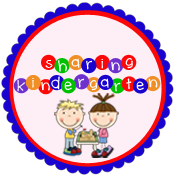The Next Step in Guided Reading: Focused Assessments and Targeted Lessons for Helping Every Student Become a Better Reader
I am loving this book. I feel like it is the book I have needed to read. I have read through chapter 4 already and I did that on the beach. This chapter is all about assessment and grouping.
This is one of the biggest ideas that hit me in this chapter.
The Next Step in Guided Reading: Focused Assessments and Targeted Lessons for Helping Every Student Become a Better Reader
What do you do for assessments?
I think we are over assessed in schools these days with assessments that don't actually benefit our instruction. At least a lot of the mandated assessments don't. We do a pre assessment before kids enter kindergarten and I'm not sure how beneficial it is. It is used to determine classes but I honestly don't look at it when I'm working on my own instruction. I'll start out with finding out who already knows their name. That will be one of our first activities we do.
We do a staggered enrollment so the first week we'll only have all the kids about 2 days. So the next week is when I'll start doing an alphavet assessment. I use this paper that one of my fellow teachers had in her files that has shapes, numbers, and letters on it. It looks a lot like this assessment I found on pinterest.
This assessment can be found on My Not So Elementary Life's TPT store. (http://www.teacherspayteachers.com/Product/Kindergarten-Skills-Inventory-723322
In the past this has really been all the assessing I've done. But after reading this chapter I think I'm going to add a few more components to my assessing. The first thing is a sight word list. I'll be taking the first 10 words that we learn in our reading series. We are adopting Journeys this year so that will be a new list of words. If I have kids that can do all this, then I will move on to dictated sentences and writing assessment. Honestly I probably won't be doing an running records until before Christmas. When I taught in Nashville, we were required to do a lot of reading assessments including running records. As of now, I don't have a good running record resource. So I'll be looking into the new reading series and see what I can use there.
How will you use this information to group your students?
While I plan on assessing the students in the first few weeks of school, I don't plan on starting groups until after the first 6 weeks when we have gotten settled into our workstation and read to self routines. I will have students that don't know a lot of letters start working with my assistant or a volunteer on tracing the alphabet. (This is an idea Richardson talks a lot about in the next chapter.) I will use the information to group my students. I hope to not have too many groups and the groups will be flexible.
Richardson spend a lot of this chapter explaining how to analyze the information you gain from the assessments. I'll be in kindergarten in the fall so I don't see having to do too many running records, but as the year progresses I'll have to reassess. I will definitely be consulting this book while working through this piece.
This was the other point that Richardson made that really stuck with me about students' instructional, frustration and independent reading materials.
Be sure to head over to Mary at Sharing Kindergarten and check out the rest of the posts. I can't wait to post all about chapter 3,. It is my favorite so far.







No comments:
Post a Comment